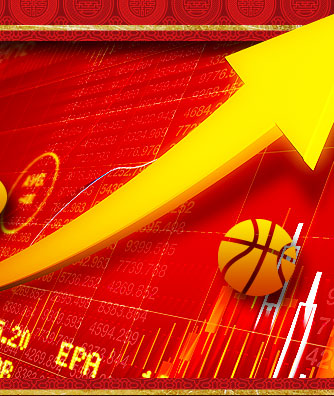Speculate on Sports Markets
Merriam-Webster defines "speculate" -
“to think about something and make guesses about it:
to form ideas or theories about something usually when there are many things not known about it.”
Take a look outside the window. Is it sunny and bright? Are the stars out tonight? What are the chances that it will rain?
Speculating on the weather may be as routine as brushing your teeth or braving the rush-hour traffic, it may even be menial to some. But how many times have you been caught in a sudden downpour? How many times have you wished you brought that umbrella, coat or jacket when you left home?
Speculating on sports is a lot like scientifically predicting the weather - a lot of factors have to be considered, voluminous information have to be carefully analyzed before making an unbiased conclusion. Which brings us to another dimension of speculation – how does your conclusion compare with that of the oddsmakers'?
More often than not, sports speculation involves going against the oddsmakers' choice, thereby taking more risk. However, the risk can be outweighed by a large profit.
True, the odds are stacked against sports speculators but sharps win from this strategy by:
- basic analysis;
- looking for over - or under-valued - teams or player;
- checking for the short-term interest a particular team or player has (hype);
- objectively assessing past performance and current form
Today's technology allows for more accurate weather forecasts that are available on your smart phone, computer or favorite 24-hour weather channel! Don't you wish it's that easy for sports speculation?
Instead of relying on pure luck, check the news, read blogs, join sports forums, follow your favorite teams and athletes on social media. Sports information is out there. The angles that you can find from these sources can greatly lessen the risk of speculating.
Check available sports markets now.
There are three main ways of how Sports Markets are shown, these are:
- Fractional Odds (also called British Odds, UK Odds or Traditional Odds)
- Decimal Odds (also called European Odds, Digital Odds, Continental Odds)
- American Odds (also called Moneyline or US Odds)
These may sound daunting (especially for non-Mathematics geeks), but these are simply different styles or modes of presenting the exact same thing.
For example, you may see the following odds in one sportsbook:
| Manchester United | 217/100 |
| Real Madrid | 13/10 |
| Tie / Draw | 11/5 |
In another sportsbook, you may see the odds for the same game as:
| Manchester United | 3.17 |
| Real Madrid | 2.30 |
| Tie / Draw | 3.20 |
Yet, in another sportsbook you see the odds for the same game as:
| Manchester United | +217 |
| Real Madrid | +130 |
| Tie / Draw | +220 |
For Fractional Odds, the formula is Total Return = [stake x (numerator/denominator)] + stake. This means if you bet $100 on Manchester United and they win the match, you win $217 (100 x (217/100) = 217), plus your original $100 stake for a total return (or payout) of $317.
For Decimal Odds, the formula is Total Return = Stake x Decimal odd number. This means if you bet the same $100 on Manchester United and they win the match, you get the same total return of $317 (100 x 3.17 = 317).
Unlike Fractional and Decimal Odds, American odds don't have any formulas. Straight-up, US Odds indicate the amount you can win for every $100 staked. Underdogs are marked with the "-", while Favorites are marked with the “+” sign. In the above example, staking $217 on Manchester United will win you $100, for a total return of, you guessed it, $317. Exactly the same as in Fractional or Decimal Odds!




